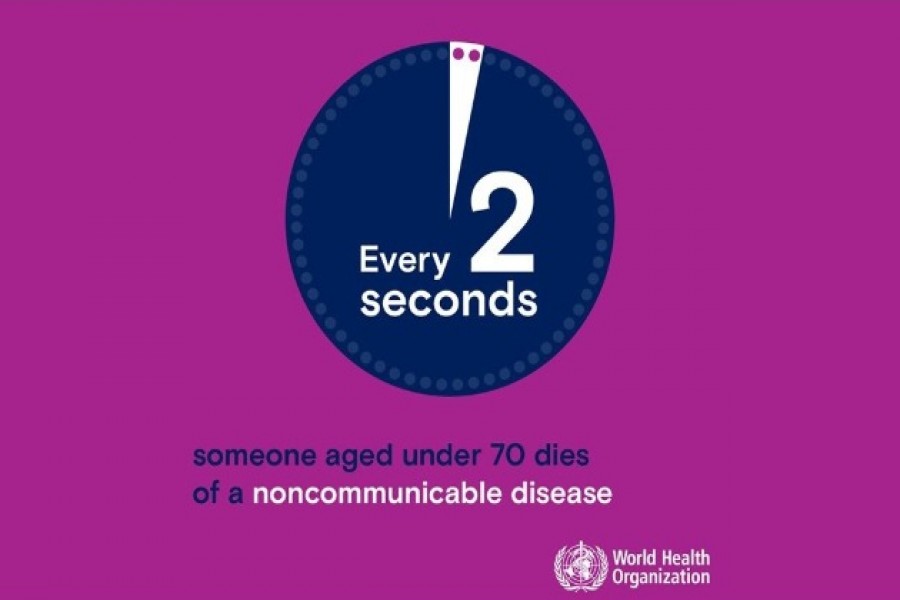Every two seconds one person under 70 dies of non-communicable disease (NCD), the majority of them in low- and middle-income countries (LMICs), according to a new report by the UN health agency.
The World Health Organization (WHO) study released Wednesday said LMICs account for 86 per cent of these premature deaths, most of which could be avoided or delayed if people had access to prevention, treatment and care, reports UNB.
The diseases pose one of the greatest health and development challenges of the century but they are overlooked and underfunded, according to the WHO report "Invisible numbers: the true extent of noncommunicable diseases and what to do about them."
Chief among them are cardiovascular diseases, such as heart disease and stroke; cancer and diabetes and chronic respiratory diseases as well as mental health illnesses.
Only a few countries remain on track to meet global development targets to reduce premature deaths from NCDs by a third by 2030, showing that the world is failing to take heed of the true extent of these diseases, which cause about 41 million deaths each year, or 74 per cent of all deaths globally.
"The data paint a clear picture. The problem is that the world is not looking at it. Even though people instinctively understand why NCDs matter to individuals and families…this understanding of the individual health consequences has not translated into adequate action, either nationally or globally," the report said.
"This inaction is partly due to a failure to understand the scale of the toll that NCDs take on health, on equity and on economies."
Cardiovascular diseases (heart disease and stroke) kill more people than any other disease, accounting for one in three deaths a year or nearly 18 million deaths.
"Two-thirds of the people with hypertension live in LMICs, but almost half of the people with hypertension are not even aware they have it," researchers said.


